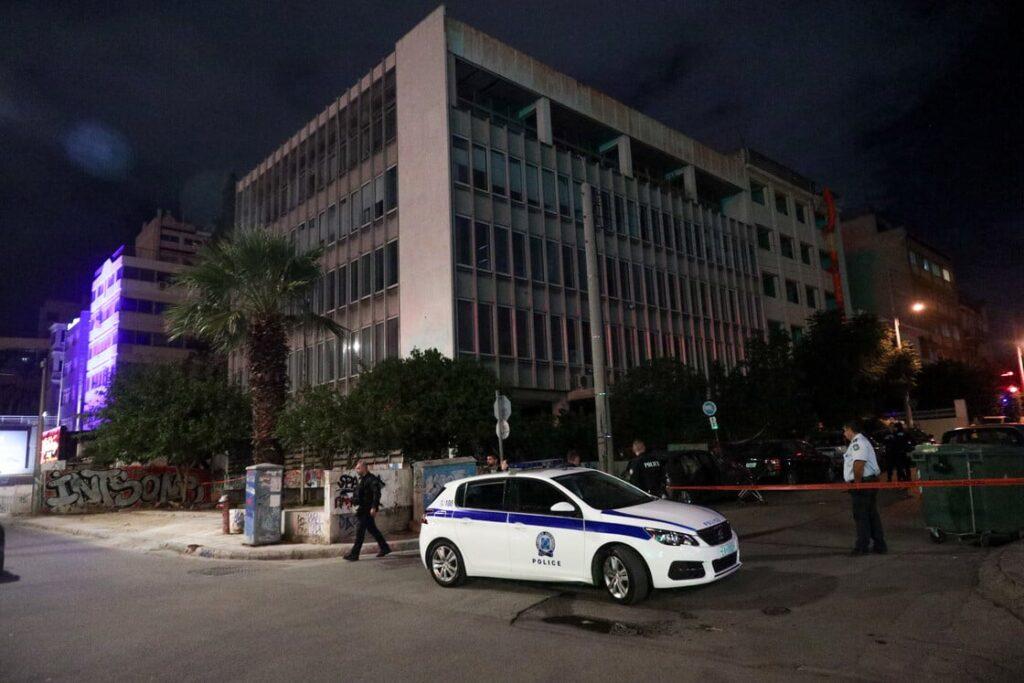About the arson of the Ministry of Rural Development and Food
EU agricultural subsidies as a tool of capitalist restructuring.
Like every ministry, the Ministry of Rural Development is a mechanism of class domination. Class domination for Greek capitalism in the sector of primary production practically means:
-Privatization of the largest and most fertile part of the agricultural land – and securing through it enormous profits – by a tiny minority of modern landowners closely linked to domestic and international agribusiness monopolies. It is indicative that today 90% of all agricultural land belongs to just 15% of wealthy rich large farmers.
• Eradication of the poor peasantry (from 900,000 in 2005 to 500,000 in 2025) and continuous pressure on their already meager income, through the sharp increase in production costs, the increase in insurance contributions and taxation, the humiliating selling prices of products to wholesalers, the drastic reduction in expenses for compensation for floods, fires, diseases, the suffocation from predatory lending by banks.
• The creation of a multiple, undervalued, multinational workforce of land workers, which, in certain sectors of agricultural production, now constitutes the main subject of extracting surplus value and profit from the owners of agricultural land.
• A specific production structure, subject to the EU’s Common Agricultural Policy (CAP), which serves the needs of the large agribusiness monopolies of the EU and domestic business groups and which results in the significant contraction of agricultural production and the transformation of the country from an exporter of agricultural products to an importer, the high precision of the products and their low quality, the desertification of the countryside and the causing of serious ecological imbalances. As for the last point, revealing the content of the CAP is the so-called “green contract”, which finances the implementation of supposedly ecological policies, sectoral politicians with a history of environmentally destructive actions, such as the Dutch monopoly that undertook the restoration following the disasters in Thessaly Region from the Daniel floods with the well-known devastating results.
In reality, almost a century after the fraudulent agrarian reforms of the interwar period with which the then landlordist government attempted to rein in the rebellious poor farmers of the time (in vain, however, as their massive participation in the guerrilla war of the 1940s demonstrated a few years later), Greek capitalism is attempting to solve the permanently unresolved “agrarian issue” the only way it historically can. That is, by destroying the poor peasantry and the natural environment in which they live.
The main lever for implementing the capitalist strategy for the eradication of the poor peasantry has been, over time, through the CAP and the Recovery Fund, the system of European Agricultural Subsidies.
Contrary to what bourgeois propaganda claims, the relentless reality experienced by the rural world confirms that these subsidies are a tool for transferring wealth from the bottom up, that they are the epitome of the structural restructurings that capital wants to impose on agricultural production.
Thus, EU subsidies scandalously strengthen large agribusiness capital and the large farmers associated with it, since 85% of the subsidies go there, while the remaining 15% is distributed according to arbitrary criteria to the great mass of poor peasantry, essentially in order to sell their raw materials cheaply to capital, which of course will then distribute them through wholesalers at high prices in the markets.
And of course, all this enormous transfer of wealth is not done through some magical community resources, precisely because these famous community resources are nothing other than the sweat and blood of the working people, which has been embezzled by the Greek state through tax evasion, to be given as a contractual obligation to the EU in accordance with the ” European baggage”.
Essentially, subsidies finance the dispossession and further impoverishment of the poor farmers, even with their own money.
It is within this framework that the so-called scandal of OPEKEPE, the Hellenic Organization for Payments and Control of Community Aids, Guidance and Guarantees, must be understood. That is, not as a deviation from an otherwise sound and socially beneficial subsidy system, but as an inevitable symptom of this system.
Just as corruption as a whole in capitalism is not an exogenous feature but a structural characteristic, inherent, so to speak, to the function based on the legal robbery of the producers of social wealth.
In this sense, OPEKEPE, as a basic state tool for the distribution of EU subsidies, cannot but have corruption as its constituent element.
The intra-urban competition for the sharing of the spoils of subsidies created – beyond the formal legal framework – a field of financial transactions with the political administrators of the Ministry of Rural Development and OPEKEPE, while these administrators, having perceived public property as their own property over time, did not hesitate to shamelessly steal it, collecting huge amounts of subsidies for themselves and their wider political and social circle through fabricated or non-existent elements.
The notorious “Frapes”, “Butchers”, K. Semertzidou (the farmer with the Ferrari), were not simple state officials or some sophisticated swindlers. They were the chosen ones of the government and agribusiness capital, the chosen ones of Mitsotakis and Voridis, the chosen ones of the big merchants who supply the supermarkets, the dairies, the meat industry. They were the right people in the right position.
“Frapes” had been appointed by the fascist Minister for Rural Development M. Voridis to the Board of Directors of the “Hellenic Society for Local Development”, while together with “Hasapis” they had also been appointed to the Board of Directors of the “Panhellenic Association of Greek Livestock”. And of course they had close relations with Deputy Minister Avgenakis and were personally acquainted with the Prime Minister. As for K. Semertzidou, she was a politician of New Democracy and coordinator of the crucial sector concerning the management of “community resources”.
There is therefore no doubt that the vast network of theft of public wealth through OPEKEPE was set up with a central order from the government through the Minister for Rural Development. Beyond the satisfaction of business interests and the enrichment of others, the goal was also to establish – through the income that this theft ensured and the purchase of consciences that it could bring – a strong social coalition of power within the rural world.
This is how the bourgeoisie and its political staff have always structured their necessary social alliances: through the gradual sharing of a small part of the loot they steal from the people. From the era of agrarian reforms in the interwar period to the Marshall Plan and the modern “European Support Frameworks”.
And of course, on this basis the so-called “national core” was built, that repulsive social base of the bourgeoisie, which included “honest Mrs. Pantelides”, respectable citizens, from housewives to priests, cops, judges, army bosses, junta members.
While the revelations about the OPEKEPE scandal are running, demonstrating the organic relationship of the government and the state with its main protagonists, with the mass-labor movement, with the world of land toil, of the struggle for existence, it is imperative to highlight the real, class essence of the scandal. Because no European Prosecutor’s Office and certainly no judicial authority or Investigative Committee in Parliament aims to shed light on the case, much less render some kind of justice, on the contrary, as the Tempi case demonstrated, it aims to conceal and disorient.
Especially with regard to the European judicial authorities, which are presented by various quarters as the epitome of credibility and independence, let us not forget that their mobilization began when the corruption of subsidies reached such a degree that it threatened the smooth flow of predatory subsidies, as well as that their only concern is the return to the otherwise benign framework of plundering the poor peasantry and nature.
With the working people experiencing a historic climax of the attack against them and bourgeois power shielding itself by generalizing state terrorism, while giving land and water to the imperialist allies of the USA, EU, Israel, the widespread demand for People’s Justice, as it emerged from the smoke of the conflicts of the magnificent Tempi movement, must put its signature on the critical developments that are opening up before us. To constitute a meeting point and rallying point for the proletarian – popular masses, the vanguard of a modern revolutionary proposal with the horizon of the liberation of labor and land from the shackles of the state, capital, and imperialism.
Dedicated to Kyriakos Xymitiris in the context of the call for October as a month of revolutionary memory and action.
Solidarity with comrades Marianna Manoura and Dimitra Zarafeta and overall with the cause of Ampelokipi.
Collaboration of Anarchists and Communists to defend the memory of the anarchist Kyriakos Xymitiris and the Palestinian resistance.
———
via: Athens.indymedia Translated by Act for freedom now!



